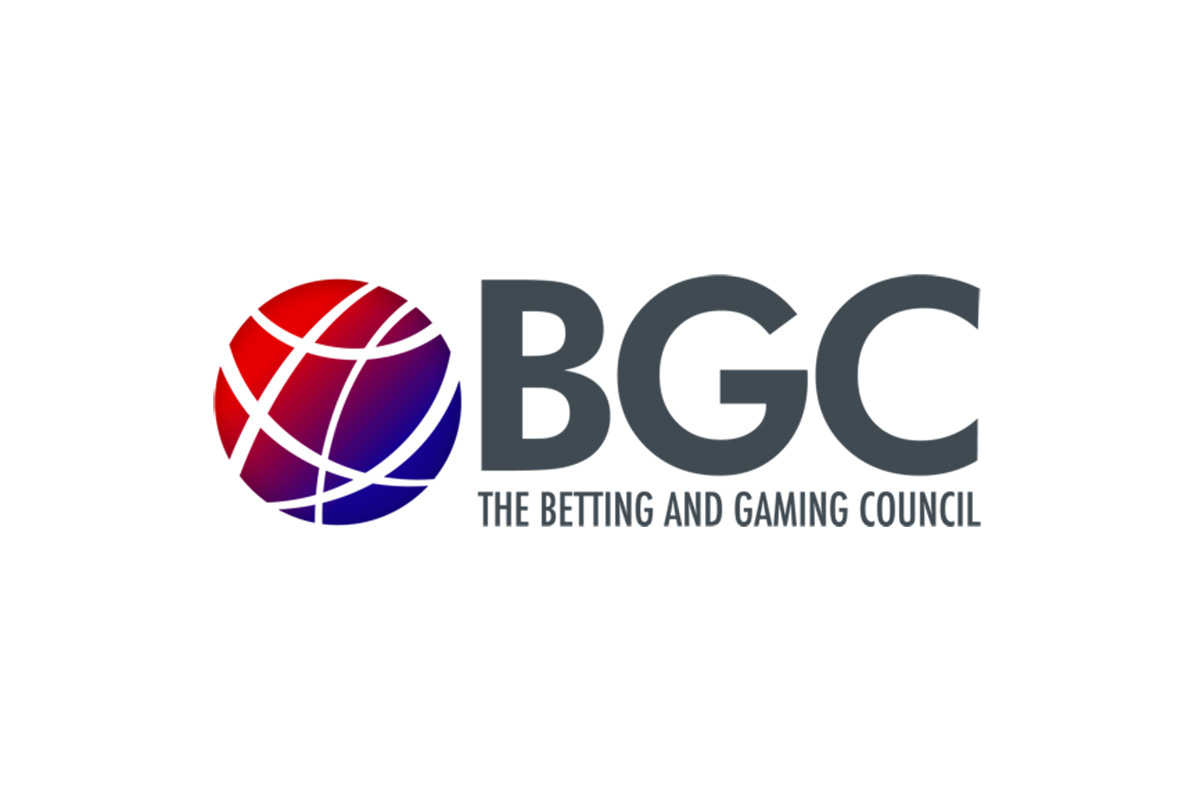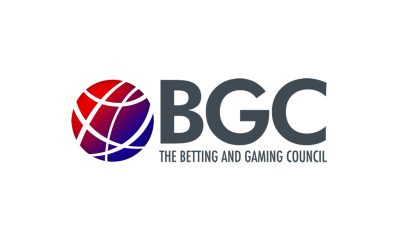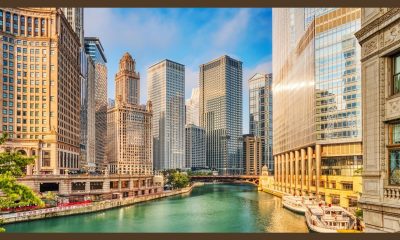Betting and Gaming Council
Proposed betting tax in the UK could wipe out 3,400 bookies and 25,000 jobs, new analysis warns

Reading Time: 2 minutes
Proposals to significantly increase the tax rate on gaming machines could have dire consequences, threatening the existence of 3,400 betting shops and putting 25,000 jobs at risk, as highlighted by industry research.
According to findings from the Betting and Gaming Council, a recent report submitted to the Treasury by a think tank suggests raising the Machine Games Duty (MGD) from 20% to 50%, which could devastate high streets across Britain. Currently, there are about 5,800 betting shops in the UK, which not only support 42,000 jobs but also contribute £140 million annually to horse racing.
This sector pays approximately £1 billion in direct taxes to the Treasury and another £60 million in business rates to local councils. Under the proposed increase from the Institute for Public Policy Research (IPPR), with each bookmaker restricted to four gaming machines, we could see the closure of 3,400 shops. This could lead to the loss of 25,000 jobs and a reduction of £84 million in essential funding for horse racing, further straining already beleaguered high streets.
This warning comes in the context of campaigns from anti-gambling organizations urging Chancellor Rachel Reeves to elevate taxes on regulated betting and gaming as a means to help bridge a £30 billion shortfall in public finances.
BGC Chief Executive Grainne Hurst said: “Any increase in betting and gaming taxes on any part of the industry would hammer ordinary punters while threatening British jobs, high streets and the future of horse racing.
“The figures for Machine Games Duty speak for themselves – thousands of shop closures, tens of thousands of job losses, and an £84 million hit to horse racing. This isn’t a small tweak to the tax system – it’s an act of economic vandalism against communities, workers and Britain’s second most popular spectator sport.
“These proposals risk achieving the exact opposite of what the Treasury intends – lower tax receipts, fewer jobs and more punters turning to unsafe, unregulated black market gambling.
“Britain’s betting and gaming sector is one of the most highly regulated in the world, supporting jobs, investment and sport across the UK.
“We urge the Government to resist short-term tax raids that would cause long-term damage – to jobs, to the economy, and to the future of British sport.”
Nearly half of all UK pubs host at least one gaming machine, earning landlords around £9,000 a year on average. Any sharp increase in MGD would add further pressure on those businesses, as well as on bingo halls and casinos that also rely on gaming machines for revenue.
The wider high street would feel the impact too. Research by ESA Retail found that 89% of betting shop customers visit other local businesses during the same trip – underlining the role bookmakers play in supporting footfall and spending.
BGC members currently contribute £6.8 billion to the UK economy, pay £4 billion in taxes, and support more than 109,000 jobs – including thousands in hubs such as Manchester, Leeds, Stoke-on-Trent, Sunderland and Nottingham.
The IPPR has suggested that increasing gambling taxes could raise up to £3.2 billion a year by hiking MGD and Remote Gambling Duty to 50%, and doubling General Betting Duty to 30%.
However, independent analysis shows such measures would damage the regulated sector, cut jobs and tax income, and drive more consumers towards unregulated operators.
Source: bettingandgamingcouncil.com
The post Proposed betting tax in the UK could wipe out 3,400 bookies and 25,000 jobs, new analysis warns appeared first on European Gaming Industry News.
Betting and Gaming Council
BGC Calls for Urgent Reform as Business Rates Accelerate High Street Losses

The Betting and Gaming Council (BGC) has issued a warning that the Government’s “unfair” business rates are fueling a high street exodus. According to the industry body, these rising costs are forcing betting shops and other businesses to close, ultimately threatening local employment, stifling investment and draining vital tax revenue from local councils.
The Growing Call for Business Rate Reform
This warning arrives as the debate over the future of Britain’s high streets intensifies. Ministers recently signaled a U-turn on planned business rates hikes for pubs—a move that recognised the extreme pressures facing “bricks-and-mortar” businesses. However, the BGC argues that this “common-sense approach” must be extended to the entire high street.
BGC CEO Grainne Hurst said: “Britain’s high streets are already under intense pressure, and an outdated and unfair business rates system is only accelerating their decline. Betting shops are closing not because communities don’t value them, but because the costs of running physical premises continue to rise.
“Ministers were right to recognise these pressures when it comes to pubs, and the same common-sense approach must now be applied across the high street. Without urgent reform, we risk losing thousands more local jobs, investment and vital footfall, while handing a growing advantage to the harmful gambling black market.”
Betting Shop Closures: By the Numbers
Official figures highlight the severity of the decline in the retail betting sector:
• 30% Decrease: The number of betting shops has fallen by nearly a third since 2019.
• Store Count: Locations dropped from 8304 in 2019 to 5825 in March 2025.
• Job Losses: This contraction has already resulted in over 10,000 job losses.
While betting shops did not face a direct tax increase in recent budgets, many operators manage both online and retail estates from a single balance sheet. Higher online gambling taxes inevitably impact the viability of physical shops, affecting staffing levels and long-term investment.
The Economic Impact on Local Communities
Despite the closures, the sector remains a pillar of the local economy. Currently, licensed betting shops:
• Support approximately 42,000 jobs.
• Contribute nearly £1 billion annually in direct tax.
• Generate £60 million per year in business rates for local authorities.
Furthermore, research by ESA Retail found that 89% of betting shop customers visit other nearby businesses during their trip, driving the “secondary spend” that keeps town centers alive.
The Risk of the Gambling Black Market
Beyond economics, the BGC warns of a social risk. Licensed shops are tightly regulated with strict age verification and safer gambling tools. Problem gambling rates in the UK remain low, at approximately 0.4% of the adult population, according to NHS surveys.
However, pushing customers away from regulated high street shops risks driving them towards the harmful illegal black market. These unlicensed operators offer no consumer protections, contribute nothing to the Treasury and provide no funding for problem gambling treatment or British sport.
The post BGC Calls for Urgent Reform as Business Rates Accelerate High Street Losses appeared first on Eastern European Gaming | Global iGaming & Tech Intelligence Hub.
Betting and Gaming Council
BGC: New Budget Would Cause Thousands of Job Losses Across the Entire Betting and Gaming Industry

Reading Time: 2 minutes
The Betting and Gaming Council (BGC) has said that the new budget would cause thousands of job losses across the entire betting and gaming industry.
“The Chancellor’s Autumn Budget has been pitched as good news for horse racing, but in reality it spells thousands of job losses right across the entire betting and gaming industry and represents a major setback not only for that sector but for all the sports our industry supports,” Grainne Hurst, chief executive of the Betting and Gaming Council, said.
“Racing has seemingly been protected from higher betting duties. It sounds like a win, but anyone who understands how the sector operates knows that isn’t true. This exemption is cosmetic. Beneath the surface, this Budget delivers a devastating blow to the very ecosystem that racing relies on.
“What the Chancellor has actually done is impose one of the largest tax hikes on any industry in modern times. Online gaming duty will soar from 21% to 40% in 2026 – a 90% increase. Sports betting duty will rise from 15% to 25% the following year, up nearly 67%. The Treasury expects £1.1 billion a year in additional tax by 2029. These are not harmless revenue raisers; they will fundamentally reshape the market, and not for the better.
“Steep tax rises layered on top of major new regulation will not make gambling safer. They will do the opposite – pushing ordinary players out of the regulated sector, which protects consumers, and into the illegal, unsafe and highly harmful black market, where none of those safeguards exist. This is particularly worrying given that gambling harm in the UK remains low at 0.4%, according to both the NHS Health Survey and the Adult Psychiatric Morbidity Survey. Driving customers into an unregulated black market risks this.
“Even the Treasury predicts a £500m increase in unlicensed activity and has allocated just £26m to counter it. That sum is a drop in the ocean given the scale of the threat, which this very Budget will accelerate.”
The post BGC: New Budget Would Cause Thousands of Job Losses Across the Entire Betting and Gaming Industry appeared first on European Gaming Industry News.
Betting and Gaming Council
BGC: New Tax Measures Could Spark a Sharp Increase in Harmful Illegal Gambling

Reading Time: 2 minutes
The Betting and Gaming Council (BGC) has warned that proposed new tax measures for the UK gambling industry could lead to a significant rise in harmful illegal gambling.
The Office for Budget Responsibility (OBR) admitted that the tax plans will reduce projected yield by around one-third, including £500 million lost by 2029-30 as consumers switch away from the regulated sector and towards the black market.
The OBR also states that around 90% of the duty increases will be passed on to consumers through higher prices or reduced payouts, making regulated products less attractive. It warns this will distort the market and drive more customers towards the illegal black market, where there are no protections, no tax contributions and no safer gambling checks.
Despite these warnings, the Government continues to claim the measures will raise £1.1 billion, a figure that industry experts, independent analysts including EY, and the BGC believe will not be achieved.
Grainne Hurst, Chief Executive of the Betting and Gaming Council, said: “The Government’s own figures show these tax plans will cause significant damage. Industry analysis based on modelling from EY finds that nearly 17,000 high-tech jobs will be lost across online betting and gaming, with over £6 billion in stakes diverted to the black market – a 140% increase in its size.
“These proposals also threaten shop closures, further job losses and a less competitive online market, meaning lower, not higher, long-term tax revenues. They also push more customers to the black market, where there are no protections, no taxes and no safeguards.”
The regulated betting and gaming sector currently contributes £6.8 billion to the UK economy, supports over 109,000 jobs, and provides £4 billion in taxes, including vital funding for racing, sport and tourism. But further tax rises threaten to weaken one of the UK’s most internationally competitive digital industries at a time when the illegal market is expanding rapidly.
The post BGC: New Tax Measures Could Spark a Sharp Increase in Harmful Illegal Gambling appeared first on European Gaming Industry News.
-

 16-Reel Slot6 days ago
16-Reel Slot6 days agoMighty Wild™: Gorilla Unleashed – Wazdan Scales New Heights in Jungle Series
-

 Alex Lorimer6 days ago
Alex Lorimer6 days agoMega Mammoth – Multiplier Mayhem Charges into the Gaming Corps Portfolio
-

 Arizona5 days ago
Arizona5 days agoArizona Department of Gaming Reports $44.9 Million in Tribal Gaming Contributions for the Second Quarter of Fiscal Year 2026
-

 Argentina Gambling6 days ago
Argentina Gambling6 days agoBETER names Matias Tapia Gomez as LatAm Business Development Manager
-

 Booming Games4 days ago
Booming Games4 days agoBooming Games and Live Play Mobile Launch “LivePlay™ Slots” with Exclusive Modo Debut
-

 Big Hot Flaming Pots6 days ago
Big Hot Flaming Pots6 days agoBig Hot Flaming Pots: Tasty Treasures – Lightning Box Brings Land-Based Hit Online
-

 Blask Index6 days ago
Blask Index6 days agoHow Venezuela’s iGaming market is reacting to US pressure
-

 Affiliate Management4 days ago
Affiliate Management4 days agoN1 Faces: Daria Maichuk — “Communication as the Key to Strong, Effective Partnerships in Affiliate Marketing”





























